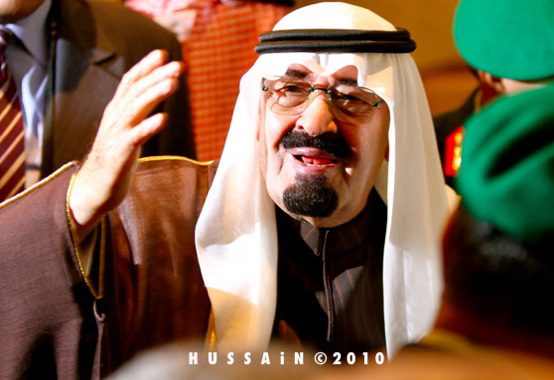The King Is Dead – Long Live the King

I don’t have much to say about the passing of King Abdullah of Saudi Arabia as such. One presumes that, contrary to some headlines, the transition of power from one brother to another will be relatively uneventful. Saudi Arabia is not a locked box; the United States has extensive contacts throughout the royal family, and undoubtedly has a very clear idea already of how Salman intends to rule the kingdom and what he intends to do – which, I presume, is not very much; the House of Saud is an extraordinarily conservative bunch and the default conservative thing to do in all circumstances is nothing.
The passing of the baton from 90-year-old Abdullah to 78-year-old (and ailing) Salman inevitably recalls the gerontocratic post-Brezhnev years in the Soviet Union. But as a family business that happens to own a country rather than an ideologically-inflected bureaucratic state, the kingdom can’t really bring forth a Gorbachev. Which is probably a good thing; Gorbachev attempted to reform a failing Soviet state by opening it up, and what followed was a catastrophic collapse, ultimately leading to a return to authoritarianism masked by the forms of democracy. What Saudi royal would even consider opening up the kingdom after observing recent history in Egypt, the ongoing chaos in Iraq and Syria, and the eruption of Yemen? And lest we forget, there are restive Shiites in the kingdom as well – right where the oil is.
None of which is to suggest that America needs to hold fast to its Saudi card for fear of the deluge that would follow any change in the kingdom. On the contrary – America’s goal should be to moderate the closeness of our ties to Saudi Arabia without causing any kind of a rupture in relations. The strength of those ties will wane naturally over time for economic reasons – as, on the one hand, American dependence on imported oil has ended, and we slowly transition to a post-fossil-fuel economy; and, on the other hand, as the world progressively transitions away from the dollar as the exclusive reserve currency. Geopolitical crises may accelerate or retard that movement, but the secular trend remains toward a less-close relationship.
Meanwhile, we should not let those crises disturb that trend unnecessarily – but the passing of the crown provides the Saudis with an opportunity to try to turn some of those crises to their advantage. Iran is supporting a burgeoning Shiite rebellion in Yemen, and opposing a burgeoning Sunni rebellion in Syria, both actions that the Saudi monarchy views as profound threats. They will ask the administration to affirm commitments made by previous administrations to previous Saudi leaders – and to extend these commitments – as a way of demonstrating American confidence in our relationship with Saudi Arabia during a time of transition. Such commitments will be a relatively cheap-seeming consolation prize to offer in the context of any kind of administration rebuff to Saudi pressure to scuttle our nuclear negotiations with Iran. Whatever we do offer, we should be wary of anything that might be plausibly interpreted as a renewal of our commitment to oust Assad from Syria, or a new commitment to intervene in Yemen on the side of the government.
We’re walking a fine line, trying to improve relations with Iran without giving the impression that we are giving a green light to Iranian troublemaking. But that’s the line we have to walk if we want to avoid either a costly and ultimately pointless confrontation with Iran or a further acceleration of the descent of the region into chaos and sectarian warfare. And we have to keep that line in mind as we reaffirm our multi-decade friendship with Saudi Arabia at this time of transition.
Comments